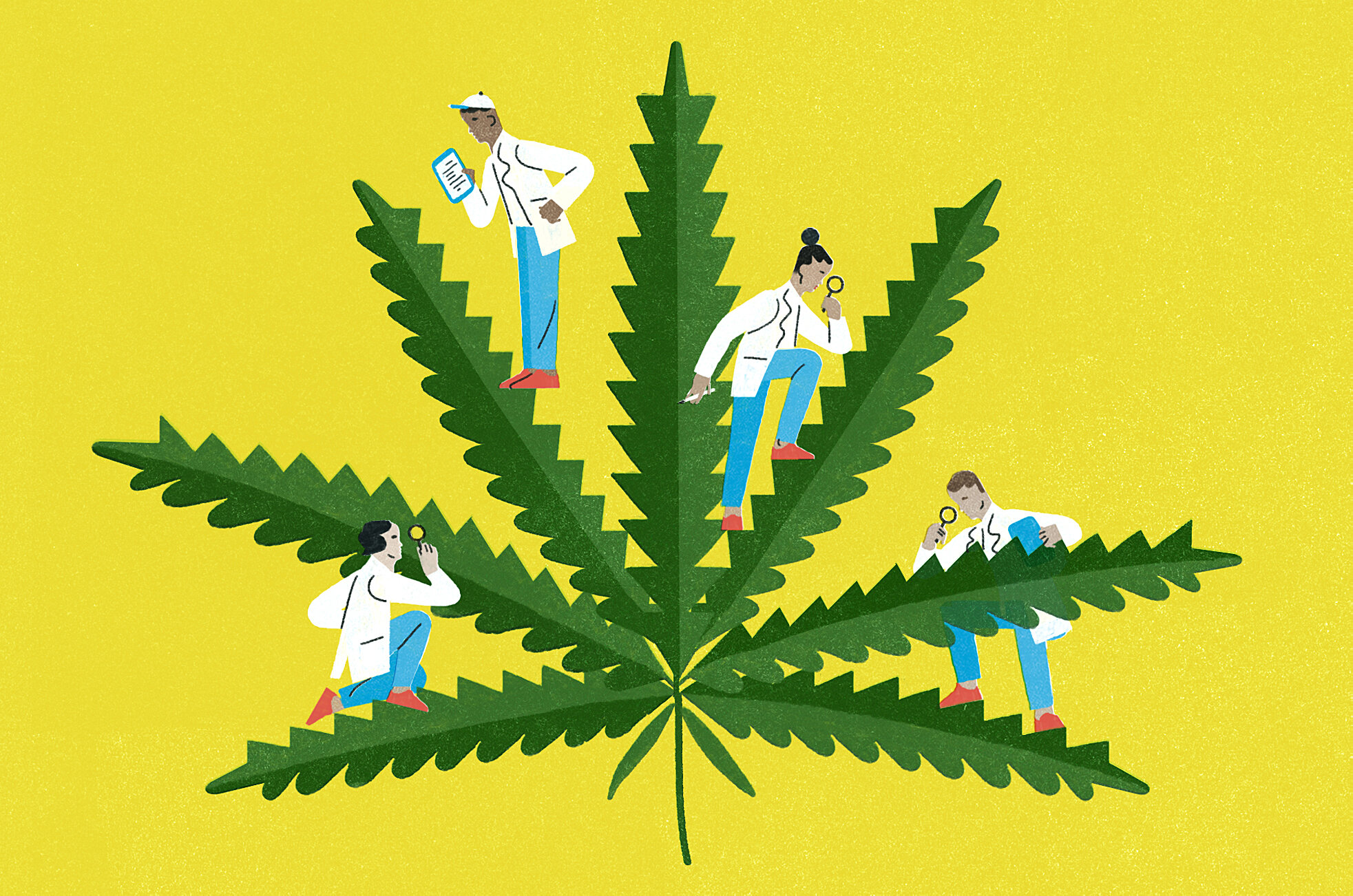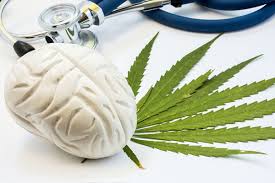Unravelling The Positive Long-Term Effects of Cannabis Consumption
3/15/2024 2:26 PM

Unravelling the Positive Long-Term Effects of Marijuana Consumption
You may have heard a million times that cannabis is bad for you long-term, but what if the opposite is actually true? This controversial plant has revolutionized the lives of countless individuals seeking both physical relief and emotional equilibrium. This mind-altering journey will explain why marijuana is not just a gateway to euphoria but also a pathway toward holistic healing and well-being that can be sustained over a lifetime.
Understanding Cannabis Compounds
 Cannabis contains over 100 different chemical compounds known as cannabinoids, each with its own unique effects on the body. The two most well-known and studied of these components are THC and CBD, and they play a crucial role in understanding the positive long-term effects of marijuana consumption.
Cannabis contains over 100 different chemical compounds known as cannabinoids, each with its own unique effects on the body. The two most well-known and studied of these components are THC and CBD, and they play a crucial role in understanding the positive long-term effects of marijuana consumption.
THC is the main psychoactive piece of the cannabis puzzle and is responsible for causing the feeling of being “high”. When it’s consumed, it binds to cannabinoid receptors in the brain, which leads to changes in brain function that result in altered perceptions, mood changes, and relaxation. Besides its coveted mind-altering effects, it has a long list of therapeutic benefits and is known to fight pain, reduce inflammation, stimulate appetite, and reduce nausea.
CBD, also known as the “bliss molecule” is a non-psychoactive compound that does not cause a “high”. While it doesn’t cause altered perceptions, it does still interact with cannabinoid receptors to provide the therapeutic effects we all know and love it for. It’s known to reduce seizures in epilepsy patients, reduce anxiety and inflammation, and promote relaxation while leaving you clear-headed.
The Positive Long-Term Effects
 This plant has been used for medicinal and recreational purposes for centuries. While today, it still remains controversial, there is growing evidence that marijuana has positive long-term effects on our health and well-being.
This plant has been used for medicinal and recreational purposes for centuries. While today, it still remains controversial, there is growing evidence that marijuana has positive long-term effects on our health and well-being.
- Chronic pain relief
Chronic pain is a common condition that affects millions of people worldwide. It can be brought about through injury, illness, or aging and can have a huge impact on someone’s quality of life. Living with constant pain makes it difficult to perform daily activities or enjoy life and can affect mental well-being in the process. While there are some pharmaceutical options, many are detrimental to health, addictive, and become ineffective over time. Luckily, many individuals have managed to find relief in a more natural way with cannabis.
This plant contains cannabinoids that interact with the body’s endocannabinoid systems. The ECS is responsible for many of the body’s functions, including mood, sleep, appetite, and pain sensation. Studies have shown that the compounds in this medicinal green herb relieve chronic pain symptoms by reducing inflammation and increasing tolerance to pain signals in the brain. For people who suffer from conditions like arthritis, fibromyalgia or multiple sclerosis, weed is their saving grace and best shot for enjoying their lives.
- Improved mood and mental wellness
 Marijuana consumption helps improve mood and mental wellness and can be a long-term, natural solution to improving overall well-being. A complex system of neurotransmitters in the brain, including serotonin, dopamine and endorphins regulates our mood. They all work together, playing an essential role in our emotional state, and when they become imbalanced or depleted, it can lead to mental health issues like depression and anxiety.
Marijuana consumption helps improve mood and mental wellness and can be a long-term, natural solution to improving overall well-being. A complex system of neurotransmitters in the brain, including serotonin, dopamine and endorphins regulates our mood. They all work together, playing an essential role in our emotional state, and when they become imbalanced or depleted, it can lead to mental health issues like depression and anxiety.
As someone who has tried multiple anti-anxiety and anti-depression medications and did not like the effects they had on the body, cannabis offered a safer alternative. When consumed, the cannabinoids in the plant bind to receptors in the brain and activate them, leading to an increase in the production of serotonin and dopamine. Don’t just take my word for it, though; studies have shown this to be true. A 2016 study published in Clinical Psychology Review found that CBD (a non-psychoactive compound found in marijuana) has anti-anxiety effects and may be effective in treating various anxiety disorders such as generalized anxiety disorder (GAD), social anxiety disorder (SAD), post-traumatic stress disorder (PTSD), obsessive- compulsive disorder (OCD), and panic disorder.
- Reduced inflammation and improved immune system function
Reducing inflammation is one of the things that cannabis does best and the improved immune system is right behind. Inflammation is a natural response of the body to injury or infection but when it goes beyond that it can lead to health problems like arthritis, autoimmune disorders, and cancer. Cannabis combats this by interacting with receptors in the body that play a crucial role in regulating inflammation, resulting in a more balanced immune response.
A study published in the Journal of Neuroimmunology found that CBD effectively reduced inflammation and oxidative stress in mice with multiple sclerosis (MS). Another study showed that THC was able to decrease inflammatory markers in patients with Crohn's disease. These are just two of many findings showing this natural drug's therapeutic benefits for people suffering from inflammatory conditions. On top of this, it has also been shown to improve immune system function by maintaining overall homeostasis within the body.
Let’s Debunk Some Common Misconceptions
 As the use of cannabis for medicinal and recreational purposes becomes increasingly accepted, there are still a lot of long-standing misconceptions surrounding its long-term consumption. They stem from outdated information and stigmatization of marijuana use that were spread mainly by the government and media before science reached its peak. Let’s talk about them and how they have been disproven.
As the use of cannabis for medicinal and recreational purposes becomes increasingly accepted, there are still a lot of long-standing misconceptions surrounding its long-term consumption. They stem from outdated information and stigmatization of marijuana use that were spread mainly by the government and media before science reached its peak. Let’s talk about them and how they have been disproven.
- Marijuana is a gateway drug: This is one of the most common myths about this medicinal plant and have been perpetuated for decades by anti-drug campaigns and media. Studies have shown that there is no relationship between using cannabis and progressing to harder drugs. Research has actually shown the opposite, cannabis acts as an alternative to addictive opioids for pain management and leads to less risk of addiction.
- It causes permanent brain damage: While it is true that ingesting cannabis heavily during adolescence can impact brain development, there is no evidence that it does the same with adults. The idea that it kills brain cells or causes long-term cognitive impairment has been discredited and has been proven to actually help repair pathways in the brain.
 It leads to lung cancer: Unlike tobacco smoke, which contains carcinogenic substances that can increase the risk of lung cancer, cannabis smoke does not have the same effect on the lungs. A large-scale study published in 2017 found no significant association between regular cannabis smoking and lung cancer.
It leads to lung cancer: Unlike tobacco smoke, which contains carcinogenic substances that can increase the risk of lung cancer, cannabis smoke does not have the same effect on the lungs. A large-scale study published in 2017 found no significant association between regular cannabis smoking and lung cancer.- It makes you lazy and unmotivated: This is another common misconception that has been widely spread by the media and has no scientific backing. With cannabis becoming more accepted by mainstream media it has become apparent that many very successful people regularly indulge.
Conclusion
While the use of Cannabis for chronic pain relief is a commonly acknowledged benefit, its positive long-term benefits can not be overlooked. I hope that I have shed some light on the benefits this natural medication can have when used to treat long-lasting conditions without the negative effects of traditional pharmaceuticals. As it continues to be studied as a safer alternative treatment, more will become known about how to better utilize it for mental and physical healing, and I can’t wait. Let us know your experience with long-term cannabis use in the comments.







